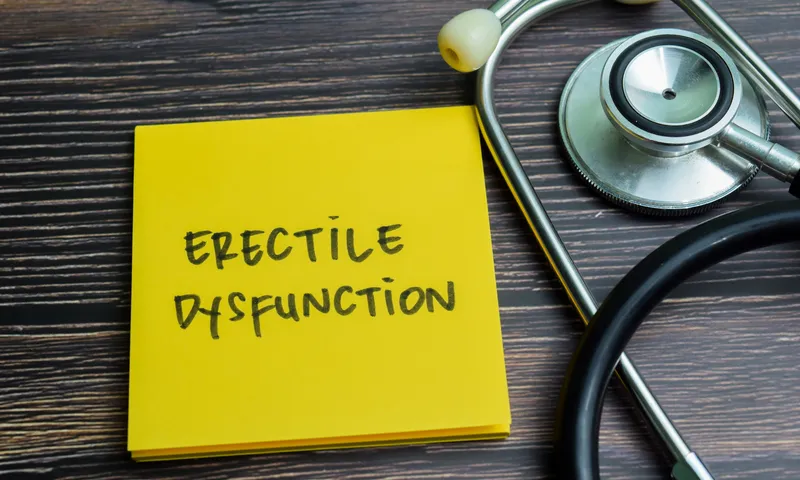What is ED Erectile Dysfunction

Most sexually active men will have faced issues getting and maintaining an erection at one point or another. Although this is very common and not concerning if it happens occasionally, some men face more severe or even chronic challenges. These may affect many aspects of their lives, such as intimate relationships, and can also lower their self-confidence. This can, in turn, lead to stress and anxiety related to sexual activity, which could worsen the situation. It’s important to know that ED often appears as an early sign or symptom of physical or mental issues and, against common belief, does not always indicate a lack of sexual desire. This article explores what ED (erectile dysfunction) is, including its symptoms, how it differs from other related conditions, and how it can be treated.
What is ED?
Erectile Dysfunction (ED) is a common condition that involves the consistent inability to achieve or maintain an erection firm enough for sexual intercourse, and most often affects men over 40. As of 2021, around 24% of men in the U.S. had experienced ED at one point in their lives. This condition often has physical causes, such as poor blood flow, nerve damage, hormone imbalances, or side effects of medications, whereas psychological causes include stress, anxiety, depression, or relationship issues. Additionally, Erectile Dysfunction can be an early sign or symptom of health issues, including diabetes, heart disease or high cholesterol.
How Does it Differ from Other Related Conditions?
Erectile dysfunction is often confused with several related conditions affecting the sex life of men. While these conditions can co-occur and may influence each other in some cases, they are separate diagnoses. Most commonly, it is confused with low libido. However, a low sex drive can occur with or without ED, since someone experiencing ED may often feel aroused and want sex despite being physically unable to.
Other issues that are frequently confused with ED include premature ejaculation (reaching orgasm too quickly) and performance anxiety, which involves a mental block that usually isn't present when there is no pressure, such as during masturbation. Erectile dysfunction also differs from infertility since sperm production in men with ED may be normal, and pregnancy can often be achieved when ED is treated, and regular intercourse occurs.
How Can ED be Treated?
Finding a suitable treatment can yield a wide range of positive results, far beyond sexual performance itself and boost overall confidence and life satisfaction. Some of the best-known treatment methods may be oral tablets such as Viagra or Levitra that work by widening the blood vessels and, therefore, increasing the blood flow to the penis to achieve an erection. Another option is Staxyn, which some may find more convenient since it does not require water, making it more discreet, while still containing the same proven active ingredient as Levitra.
If you're unable to take oral medication or it doesn’t produce the desired results, injections such as Edex are effective and predictable alternatives. They start working around five minutes after injection, much faster than oral tablets, which typically begin working after around 60 minutes. Injections are also effective at lower levels of sexual arousal than oral medication and work similarly by improving blood flow. Lastly, other options such as hormone therapy, using a vacuum erection pump, and penile implant surgery may be beneficial in conjunction with lifestyle changes and addressing underlying physical and mental health issues.
Now that you know what ED (erectile dysfunction) is, speak to your healthcare provider if you experience any related symptoms. Addressing these issues will allow you to gain back your confidence, have a fulfilling sex life, and contribute to your overall health.
IMPORTANT NOTE: The above information is intended to increase awareness of health information and does not suggest treatment or diagnosis. This information is not a substitute for individual medical attention and should not be construed to indicate that use of the drug is safe, appropriate, or effective for you. See your health care professional for medical advice and treatment.


